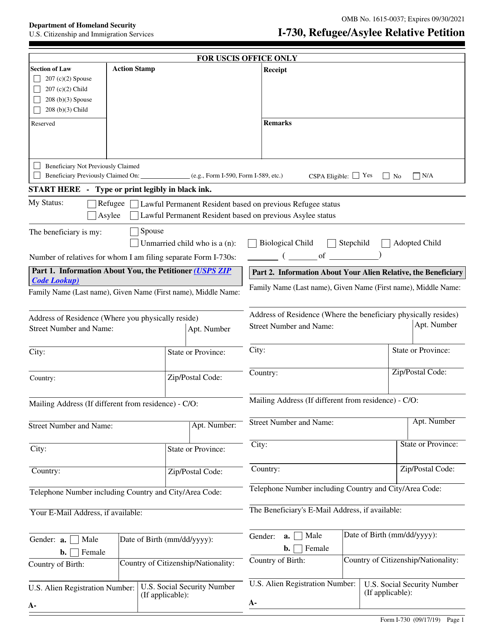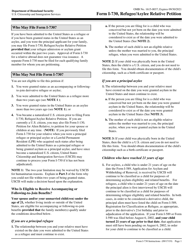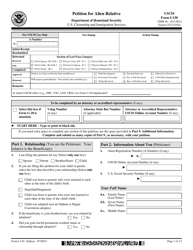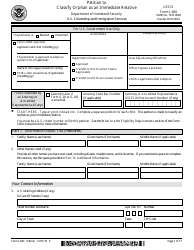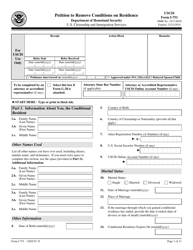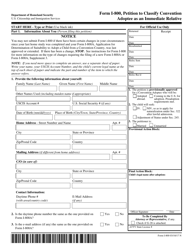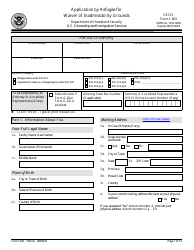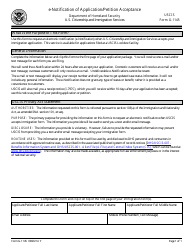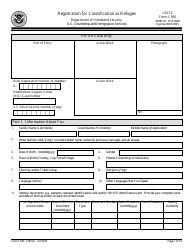This version of the form is not currently in use and is provided for reference only. Download this version of
USCIS Form I-730
for the current year.
USCIS Form I-730 Refugee / Asylee Relative Petition
What Is USCIS Form I-730?
This is a legal form that was released by the U.S. Department of Homeland Security - Citizenship and Immigration Services on September 17, 2019 and used country-wide. Check the official instructions before completing and submitting the form.
FAQ
Q: What is USCIS Form I-730?
A: USCIS Form I-730 is the Refugee/Asylee Relative Petition.
Q: Who can file USCIS Form I-730?
A: Asylees or refugees who have been granted status in the US can file Form I-730 to petition for their eligible family members.
Q: What is the purpose of USCIS Form I-730?
A: The purpose of Form I-730 is to reunite qualifying family members with asylees or refugees who have been granted status in the US.
Q: What type of family members can be included in USCIS Form I-730?
A: Spouses and unmarried children under the age of 21 of the asylee or refugee can be included in Form I-730.
Q: Do I-730 petitioners need to show a financial sponsor?
A: No, I-730 petitioners do not need to show a financial sponsor.
Q: Can derivative beneficiaries of an I-730 petition apply for a work permit?
A: Yes, derivative beneficiaries of an I-730 petition can apply for a work permit.
Q: Can USCIS Form I-730 be expedited?
A: Expedited processing may be available for Form I-730 in certain circumstances. Contact USCIS for more information.
Form Details:
- Released on September 17, 2019;
- The latest available edition released by the U.S. Department of Homeland Security - Citizenship and Immigration Services;
- Easy to use and ready to print;
- Yours to fill out and keep for your records;
- Compatible with most PDF-viewing applications;
- Fill out the form in our online filing application.
Download a fillable version of USCIS Form I-730 by clicking the link below or browse more documents and templates provided by the U.S. Department of Homeland Security - Citizenship and Immigration Services.
